- Yu Gan, PhD
- Sixto M. Leal, Jr, MD, PhD, FCAP, D(ABMM)
- Austin Robinson, PhD
- Josh Stern, PhD, Brittany Lasseigne, PhD
- Balasubramanyam Karanam, PhD
-
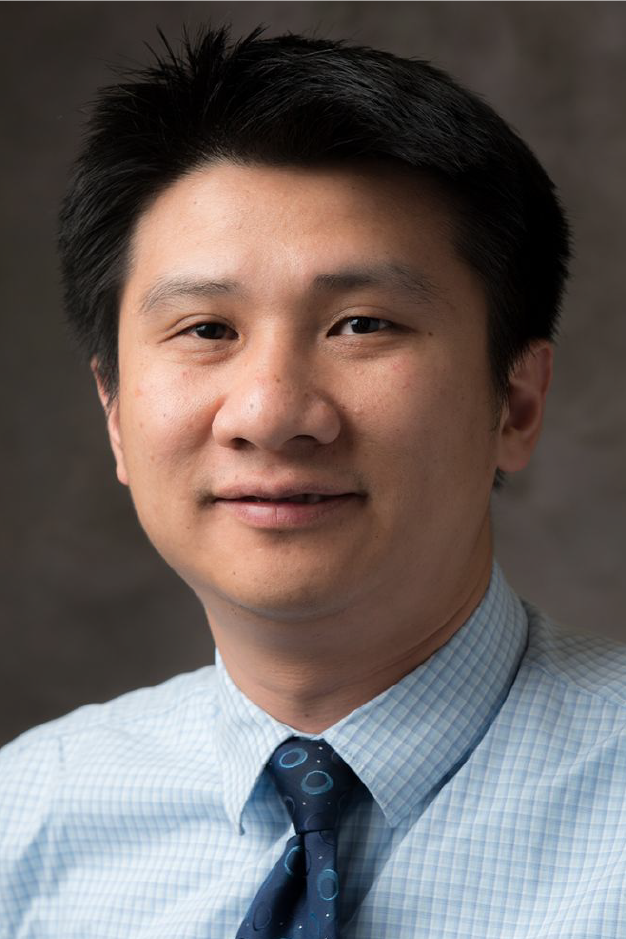 Yu Gan, PhD
Yu Gan, PhD
Assistant Professor, Department of Electrical and Computer Engineering
University of Alabama
Describe your Pilot Project and where your progress currently stands: "We use artificial intelligence (AI) techniques to improve coronary imaging with an ultimate goal of aiding the treatment of cardiovascular disease, which is a disparity health issue in our Deep South region. We are developing a set of software tools to push the limit of image resolution and bring real-time histopathological information, which is conventionally obtained through hours of chemical process and pathologist interpretation. Specifically, we use deep learning, a sub-branch of AI. The core concept is to train computers with a large amount of high-resolution images and histology images to “teach” our imaging system what a desired image (with high resolution and histological information) would look like. Then, the imaging system could automatically process any low-quality image to get its high-quality counterpart. With the support from CCTS, we have so far acquired over 4000 volumetric image data from human coronaries and obtained inspiring preliminary results for software development."
What value has the CCTS Pilot Program brought to your career and what would you tell someone considering applying for this opportunity? "CCTS Pilot Program provides invaluable support to my career in the aspects of both research and consulting. My research topic is in need for data, particularly image data from human samples from hospital. This program provides me unique research resources of tissue acquisition and processing, which boost the progress of the software development that my lab aims to do. Meanwhile, I also benefit tremendously from this Pilot team through meetings this program holds. CCTS helps me to build collaborative team with experts from areas that are essential to this project, from clinical side to commercialization. The team members provide constructive insights to make sure that my work is clinically meaningful and commercially impactful. I would tell someone considering applying for this opportunity that “this is a golden opportunity to seize to prepare for a long-term career and your first full-length research proposal."
How I became interested in this opportunity with the CCTS: "In the first faculty meeting after I joined the University of Alabama, a senior faculty member in my department tipped me to subscribe for CCTS emails. This is how I got to know this program. Then, I explored further and believed it is the program for junior faculty like me to seek support in the form of cross-disciplinary collaboration. The fact that CCTS places an emphasis on addressing scientific issues with regional disparity makes me reconsider how to present my research work to diverse audience and hopefully make a bigger impact."
Here’s the possible impact of my research: "Hopefully, our team and collaborators will work together to build an intelligent platform where we inspire and motivate next generation of AI engineers, we generate new knowledge, we educate ourselves and also our community, and eventually we produce some actionable guidance that doctors could use to improve clinical outcomes.
-
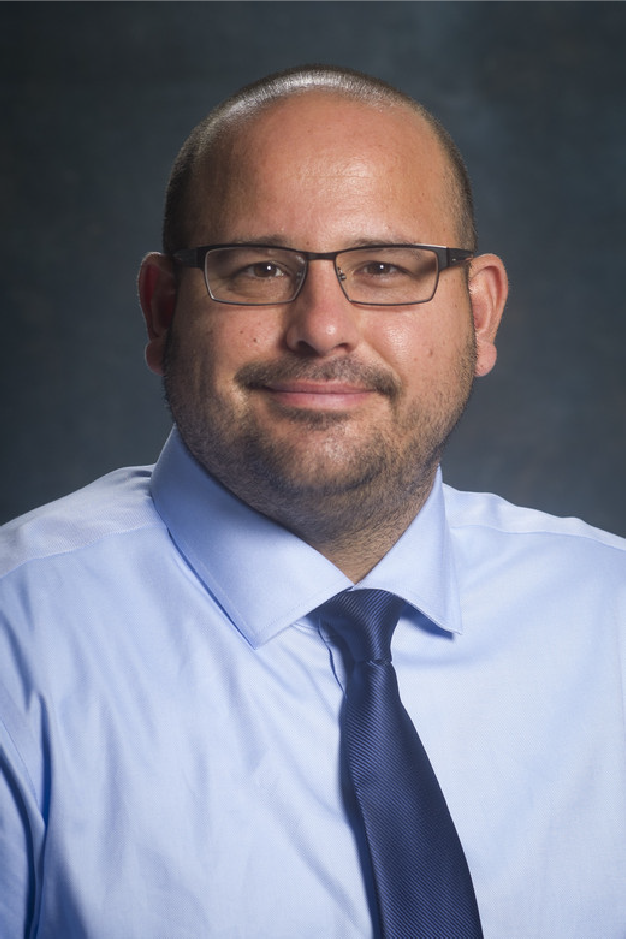 Sixto M. Leal, Jr, MD, PhD, FCAP, D (ABMM)
Sixto M. Leal, Jr, MD, PhD, FCAP, D (ABMM)
Director, Clinical Microbiology, Fungal Reference Laboratory
Assistant Professor, Department of Pathology | Division of Laboratory Medicine
University of Alabama at Birmingham
Describe your Pilot Project and where your progress currently stands: “Clostridiodes (formerly Clostridium) difficile is a Gram positive bacterium that causes a spectrum of diarrheal illness. Current laboratory diagnostic tests lack sufficient sensitivity or specificity to accurately distinguish active infection from asymptomatic carriage (10-50% of population) leading to a failure to identify patients that would benefit from therapy and inappropriate antibiotic utilization in colonized individuals. With support from this CCTS pilot project, we developed a novel test with significant potential for commercialization that detects active C. difficile infection with increased sensitivity compared to leading commercial systems enabling more accurate detection and treatment of affected individuals.”
What value has the CCTS Pilot Program brought to your career and what would you tell someone considering applying for this opportunity? "“The CCTS pilot program is well structured to support the success of individuals seeking to execute translational research projects. It enables investigators to tap into local expertise to find the right contacts to move projects forward. This includes access to expert clinical research nurses to assist with sample collection, feedback from principal investigators that have successfully executed similar projects, brainstorming sessions to troubleshoot problems, optimize workflows, with significant consideration on intellectual property protection, and advice on the acquisition of external research support to take the project to the next level. As a Junior Faculty member, the CCTS helped me make the right connections and provided the expertise and financial support to take this project to the next level. Post completion of the award period I remain actively engaged with the CCTS on multiple levels and I truly appreciate being a part of this fantastic research community.”
What keeps you motivated? “I am highly motivated to make a positive impact in the lives of as many individuals as possible by providing the highest quality accurate data needed for providers to make the best medical decisions impacting patient care. I obtain a lot of personal satisfaction and pride from rendering microscopic diagnoses from patient samples, developing novel diagnostic tests, and serving as a microbiology consultant to infectious disease colleagues. As the COVID pandemic has shown us, diagnostic testing has a significant impact on the health of individual patients and communities and this provides all of the motivation needed to drive my clinical and translational research program forward.”
-
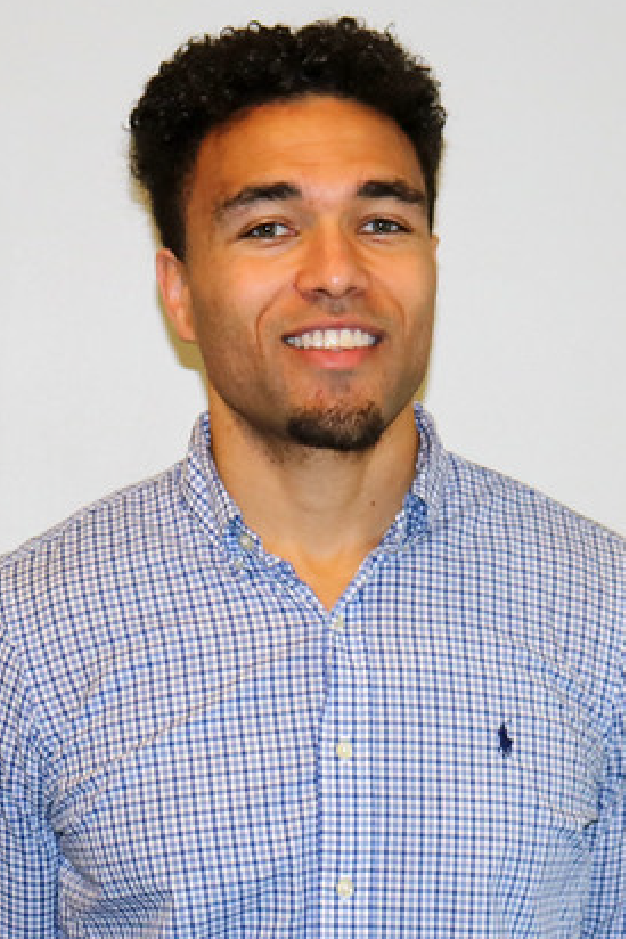 Austin Robinson, PhD
Austin Robinson, PhD
Assistant Professor, Kinesiology
Auburn University
Describe your Pilot Project and where your progress currently stands: “Heart disease is the number one cause of death in America and high blood pressure is a major factor in the cause of heart disease. Black Americans are more likely to experience high blood pressure and unhealthy blood vessels, due to multifactorial reasons including socioeconomic factors. Our research team wants to determine whether free radicals from a part of our cells called mitochondria contribute to racial health disparities. We are using an antioxidant called MitoQ to determine whether it improves blood pressure and blood vessel function, particularly in Black adults. Thanks to the CCTS Pilot Program we have collected data in nearly 30 Black and White and participants of other racial and ethnic backgrounds. We are in the process of analyzing the data and recruiting more participants in hopes of eventually publishing a paper on our findings and securing additional funding to expand upon our initial findings.”
What value has the CCTS Pilot Program brought to your career and what would you tell someone considering applying for this opportunity? “The CCTS Pilot Program has been amazing. For one, the CCTS Pilot funds were among my earliest sources of NIH funding. The funding enabled me to establish a new line of research in my laboratory that I can hopefully continue to build upon with future extramural funds. In the process of securing the CCTS Pilot funds I received excellent constructive feedback from the grant pre-review. The feedback I received has strengthened my grantsmanship and helped me secure other funds for my lab. The regular check-ins with my project action team helped me to stay accountable and troubleshoot alternative approaches to successfully collect data during the COVID-19 pandemic. Lastly, I have made new collaborators who were part of my CCTS Pilot Program action team. I highly recommend applying for this opportunity!”
What are your long-term goals/plans? "I want to run a well-funded and productive research laboratory where I also serve as supportive mentor and professor."
What do you see as the possible impact of your research? "I want to conduct research that informs policies and health behaviors that could lead to the prevention and treatment of cardiometabolic disease."
What keeps you motivated? "Conducting research that will help improve human health and making biomedical academic science more diverse and inclusive." -
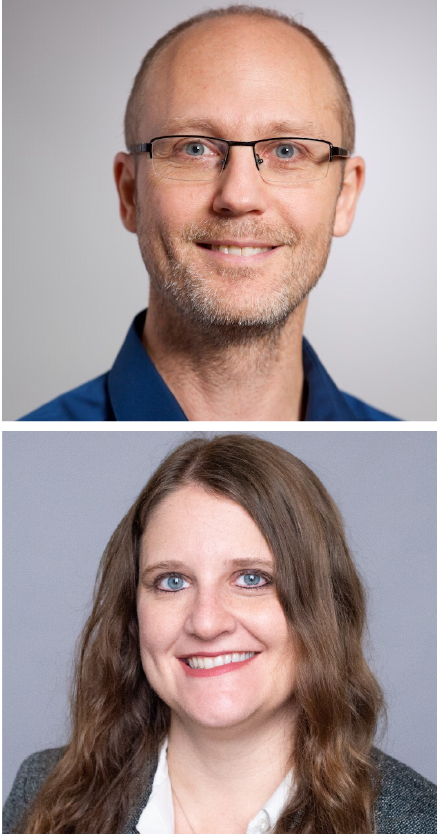 Josh Stern, PhD
Josh Stern, PhD
Assistant Professor, Department of Biochemistry and Molecular Genetics
University of Alabama at Birmingham
Co-Investigator, Brittany Lasseine, PhD
Describe your Pilot Project and where your progress currently stands: "Age is a major risk factor for cancer, with some cancers displaying age-related driver mechanisms. Older patients have historically been underrepresented in studies. Preliminary data indicate that a biomarker associated with a subset of cancer types in older patients may suggest clinical benefit by deploying approved therapeutics in novel contexts. This proposal was an interdisciplinary effort between our two laboratories, bringing together bioinformatics, biochemistry, genomics, and molecular genetics. We have shown in model systems that a subset of cancers can be primed to undergo cell death by inhibiting a key cellular proliferation pathway (RAS) when coupled with compounds reported to selectively target aged/senescent cells."
Asistant Professor, Department of Cell, Developmental and Integrative Biology
University of Alabama at Birmingham
What value has the CCTS Pilot Program brought to your career and what would you tell someone considering applying for this opportunity? “The Pilot program allowed us to discover that an FDA-approved drug that is reported to remove aged/senescent cells can be effectively combined with another FDA-approved inhibitor to kill a wide range of cancer cell types that display aging/senescence-related characteristics. Our results, funded by this award, provide a rationale for a more thorough investigation of the molecular drivers of this novel sensitivity.”
What do you see as the possible impact of your research? "If the molecular events that trigger aging also contribute directly to some cancers, then compounds that selectively remove aged (senescent) cells may prophylactically help to prevent the initial tumor occurrence."
Why my science matters to me: "I love being a scientist because it allows me the opportunity to learn things about the world around me that no one in the history of humankind has known before and to help people, both as an educator and a scientist." (Lasseigne)
What keeps you motivated? "The pressing need for effective cancer therapies. ." (Stern) -
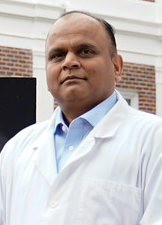 Balasubramanyam Karanam, PhD
Balasubramanyam Karanam, PhD
Assistant Professor, Department of Biology
Tuskegee University
Describe your Pilot Project and where your progress currently stands: “Quadruple Negative Breast cancer (QNBC) is a subtype of Triple Negative Breast Cancer (TNBC) with loss of Androgen receptor (AR). Relative to white women, African American women had higher percentage (81%) of AR-negative tumors, and, for both races, AR-negative tumors correlated with the basal subtype, a shorter time to progression, and worse overall survival compared to white women. Our research team wants to determine the inhibition of ubiquitin receptor ADRM1 axis in QNBC breast cancers with a novel inhibitor alone and along with rationalized combination regimens that will synergistically induce death and reduce drug resistance. Thanks to the CCTS Pilot Program, we have collected ADRM1 protein expression data in breast cancer patients belong to African, African American, and Caucasian ancestry utilizing immunohistochemistry. We also identified effective doses of combination of ADRM1 inhibitor and paclitaxel on QNBC cells. These findings will advance our knowledge of vulnerable pathways in QNBC treatment.”
What value has the CCTS Pilot Program brought to your career and what would you tell someone considering applying for this opportunity? “The CCTS Pilot Program helped me establish an ADRM1 axis in QNBC research in my laboratory. It allowed me to forge collaboration with Up Therapeutics, LLC in Maryland, a group working on developing small molecule inhibitors to target ADRM1. Our collaboration was awarded a Small Business Technology Transfer (STTR) grant. We also submitted two R21 grants. One of the R21 grants received 17 percentile on the first submission. The CCTS helped me in making the right connections and collaborations. I truly appreciate being a part of this research community, one that helps me to do bench to bedside translational research. I highly recommend applying for this opportunity.”
What do you see as the possible impact of your research? "Our findings will provide novel insight into understanding signaling pathways that induce apoptosis and reduce drug resistance and form the basis for understanding the biological basis of racial disparity in breast cancer."
Why my science matters to me: "Science gives me an opportunity to provide solutions to patients suffering from cancer."